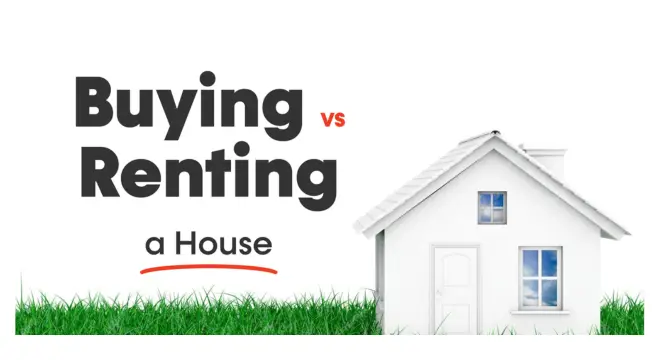Selling a Home in Florida: Do You Need to Tell Buyers About a Death?
Selling a property can be stressful enough without having to navigate the complexities of Florida’s property death disclosure laws. But here’s the thing: if a death occurred in the house, whether it’s a natural death, suicide, or even a homicide, the seller may be legally required to disclose it.
As a seller, this might feel uncomfortable or even daunting, especially if you’re unsure about what exactly needs to be shared or how to handle a potential buyer’s reaction. But ignoring these disclosure requirements could lead to legal issues down the line. In this article, we’ll break down Florida’s laws surrounding property death disclosures, give you the tools to navigate the process smoothly, and explain why full transparency can help you avoid trouble later on.
Are you ready to dive in and understand what you need to know before selling your home in Florida? Let’s get started.
Understanding Florida’s Property Disclosure Requirements
When you’re selling a home in Florida, there are specific disclosure requirements that you must follow. These laws are designed to ensure that buyers know exactly what they’re getting into and that sellers don’t hide important details that could affect the value or safety of the property.
As a seller, you are legally required to disclose any material defects or issues with the property that might affect the buyer’s decision to purchase. This includes, but is not limited to:
- Environmental conditions: Any issues like flooding, mold, or environmental hazards.
- Structural issues: Foundation problems, leaks, or significant repairs needed.
- Hazardous materials: Presence of things like lead paint, asbestos, or radon.
But here’s the thing—you don’t have to volunteer every little detail. Florida law only requires you to disclose material facts, meaning anything that would significantly affect the value or livability of the property.
While you might feel like certain aspects of the home are minor, remember: what seems insignificant to you could be a big deal to a potential buyer. This is why full disclosure helps you avoid problems later.
If you want to compare how Florida’s laws align with other states, be sure to check out why it’s important to disclose deaths in your home in California, as it highlights the more strict requirements in that state.
If you leave something out and it surfaces after the sale, you could face legal consequences. You can read more about the specific property disclosure laws in Florida here: Florida Statute on Property Disclosure.
What Does Florida’s Death Disclosure Law Require?

When selling a property in Florida, there’s a specific law that requires sellers to disclose whether a death occurred in the house, but it’s not as clear-cut as you might think. You may be wondering: Do I really have to tell a buyer if someone died in the house?
Here’s the correct information:
- Death Disclosure Requirement: In Florida, there is no legal requirement for sellers to disclose a death that occurred in the house. The law doesn’t mandate that you inform buyers about suicides, homicides, or natural deaths in the home, regardless of when they happened.
- Stigmatized Property: While Florida law doesn’t require death disclosure, it’s important to note that properties can still be considered stigmatized.While Florida does not require death disclosures, states like Alaska have different rules. Learn more about how the laws in Alaska affect property sales and why disclosure is essential by reading why you must disclose deaths in your house in Alaska.
This means if the property is associated with a traumatic event or history (like a well-known murder), it could affect the buyer’s perception or decision. However, this is more about ethics than law, and in Florida, sellers are not obligated to disclose it.
- When Disclosure Isn’t Needed: Unlike some states that mandate disclosing deaths within a certain period (like 3 years), Florida doesn’t impose such a rule. If you’re concerned about a past death, you are not required to disclose it, no matter how recent or old the death was.
Florida vs. Other States: How Do Death Disclosure Laws Compare?

Florida’s death disclosure law stands out when compared to other states in the U.S. Many states have their own requirements for disclosing deaths that occurred in a home, but Florida takes a unique approach. Understanding how Florida’s laws compare to other states can help you if you’re considering property transactions outside of Florida or are involved in real estate across state lines.
Here’s a breakdown:
- State-by-state comparison: According to the Spaulding Decon state-by-state map, Florida is one of the few states that does not require sellers to disclose deaths on the property. This contrasts with states like California, where sellers must disclose a death if it occurred within three years of the sale, or New York, which has specific requirements for disclosing suicides or homicides.If you’re considering a real estate transaction in South Dakota, you might want to understand the importance of death disclosure by checking out why you must disclose deaths in your house in South Dakota, which highlights state-specific requirements.
- California: In California, sellers are required to disclose any death that occurred on the property within the last three years. This is a clear contrast to Florida’s non-disclosure requirement.
- Texas: Texas has a similar law to Florida in that it doesn’t require disclosure of deaths unless the buyer asks directly. However, in Texas, sellers might be encouraged to disclose other potential issues if the death was the result of something like a violent crime or would affect the buyer’s safety.
Conclusion: The Bottom Line on Death Disclosure in Florida
When it comes to selling a home in Florida, death disclosure laws are relatively relaxed compared to other states. However, this doesn’t mean sellers should ignore the topic altogether. Florida law doesn’t require you to disclose a death that occurred in the property, but if the death was recent, stigmatized, or associated with any criminal activity, it’s worth being upfront about it.
- Legal Compliance: While death disclosure isn’t mandatory, compliance with Florida’s real estate disclosure laws is still critical to avoid future complications. Being transparent from the start is always a good practice.
- Building Trust with Buyers: Disclosing the facts, even when uncomfortable, helps to establish trust with potential buyers and ensures that your sale isn’t jeopardized by hidden details.
For sellers, the key takeaway here is honesty. If you believe a death in the home might affect the buyer’s perception, it’s best to address it early on.
What’s your experience with death disclosures in Florida real estate? Have you ever had to navigate this issue as a seller or buyer? Share your thoughts in the comments below — we’d love to hear your story!
If you’re planning to buy or sell property and want more tips on navigating Florida’s real estate laws, check out Build Like New for expert advice and resources.
Disclaimer: The information provided in this article is for general informational purposes only and should not be construed as legal advice. For specific legal concerns regarding death disclosure or other real estate matters in Florida, please consult with a qualified attorney or real estate professional.


